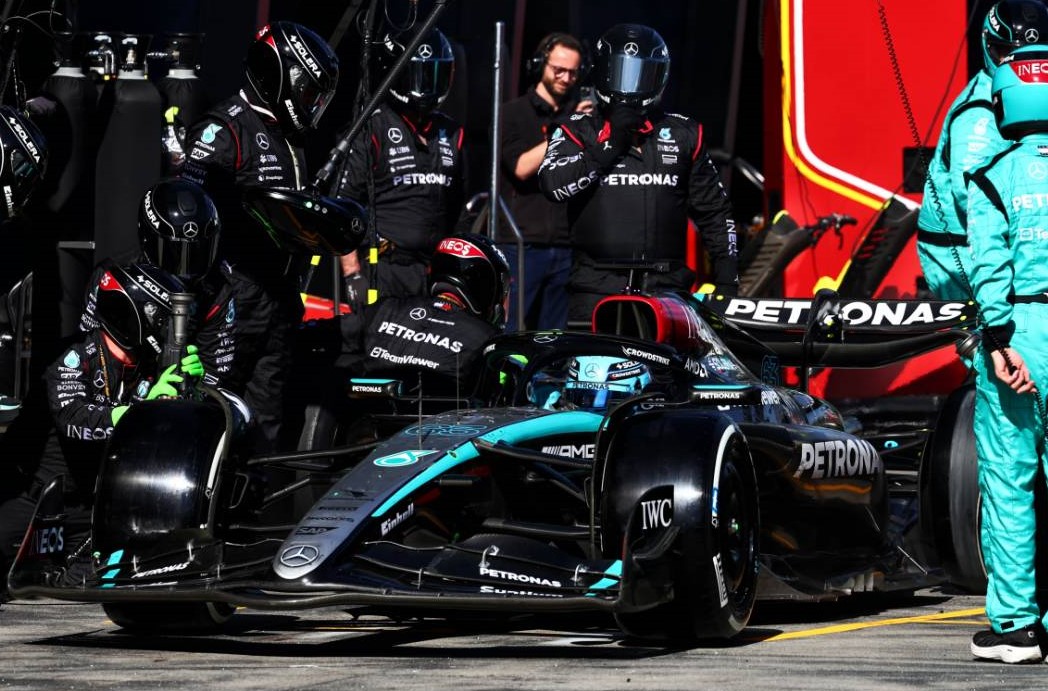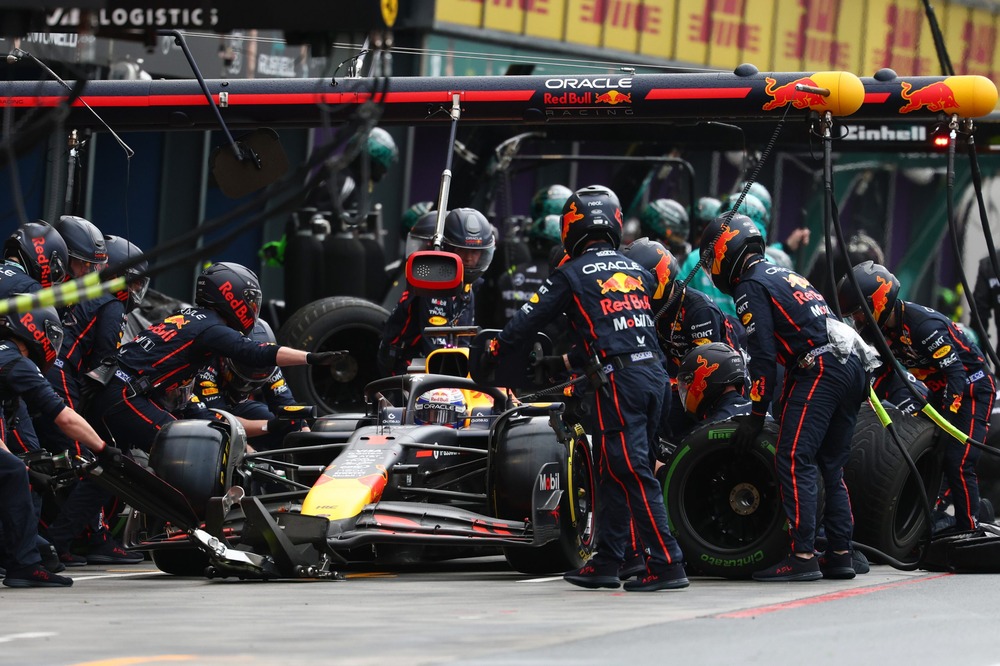Mercedes has marked the first F1 team to surpass a £500 million revenue turnover, according to its recently released financial reports.
Although Mercedes isn’t performing as well as it could be on the racetrack, the team continues to lead in Formula 1 finances as the top earner and is currently the first Grand Prix racing enterprise to turnover well over £500 million in revenue annually.
The company that runs the squad, Mercedes-Benz Grand Prix Ltd., revealed its latest accounts for its fiscal year 2023 with a significant revenue rise to £546.5 million, a £71.9 million increase compared to 2022.
In contrast, Red Bull Technologies, the company that owns the Red Bull Formula 1 Team, had a turnover of £385.6 million in 2022.
This increase in revenue is a reflection of F1’s increasing commercial value, which is being driven by lucrative sponsorships and its global fan base.
However, Mercedes’ profits marginally declined to £83.8 million from £89.7 million in 2022 despite the spike in revenue. This decline was primarily caused by two factors: higher operational costs and a higher tax burden.
The team’s rising expenditure was largely directed to car development. The development assets for race cars, which are carried over to the following season, increased from £41 million in 2022 to £52.2 million in 2023.
This higher price tag includes, in part, the additional cost of rebuilding its 2024 F1 contender, which required a new chassis for the current season. It is expensive to pursue performance so relentlessly, but on the other hand, it’s necessary to remain competitive in the brutal world of Formula 1.
The £52.2 million figure also accounts for the team’s early production of the 2023 gearbox and suspension parts that Williams, the customer, received this year. This work allowed the team to wrap up the fabrication of the parts before Aston Martin’s 2024 components.
Mercedes also experienced a significant rise in personnel, hiring 175 more employees in 2023 bringing the team’s total staff to 1289. Therefore, this expansion resulted in a £29.6 million increase in the salary bill.
A greater workforce means higher recurring expenses, albeit some of the increase is attributed to bonuses paid for the team’s second-place finish in the F1 2023 Constructors’ Championship.
A deferred tax asset boosted Mercedes’ financial outlook in 2022. However, the team’s tax burden increased by £23.7 million in 2023 as a result of a government-imposed corporation tax hike from 19% to 25%.
Although this had a major negative impact on the team’s financial performance, Mercedes’ core business continues to be strong, as evidenced by their Earnings Before Interest and Tax (EBIT), which has remained steady at about £113 million.
Mercedes managed to reclaim second place in the 2023 championship, but as a result of fewer podium finishes, the team’s exposure to the media plummeted. However, it’s possible that other sectors, such as fan gear and sponsorship agreements, saw growth.
“The team’s share of television coverage showed a small decline to 14.7% for 2023, reflecting the lower number of podium finishes the team enjoyed versus 2022,” Mercedes stated in the report.
“The cumulative Advertising Value Equivalent (AVE) remained strong for commercial partners and shareholders, at $5.3 billion.
“The team continued to grow strongly on social media, with a cumulative followership of 36 million (+15%) and a total of 465 million engagements (+9%).
“During 2023, the team welcomed seven new commercial partners and introduced a world-class hospitality offering at the Las Vegas Grands Prix, to serve the increased demand for VIP race attendance as F1 continues to grow globally.
“In July, Forbes estimated the value of the team to be $3.8 billion.”





